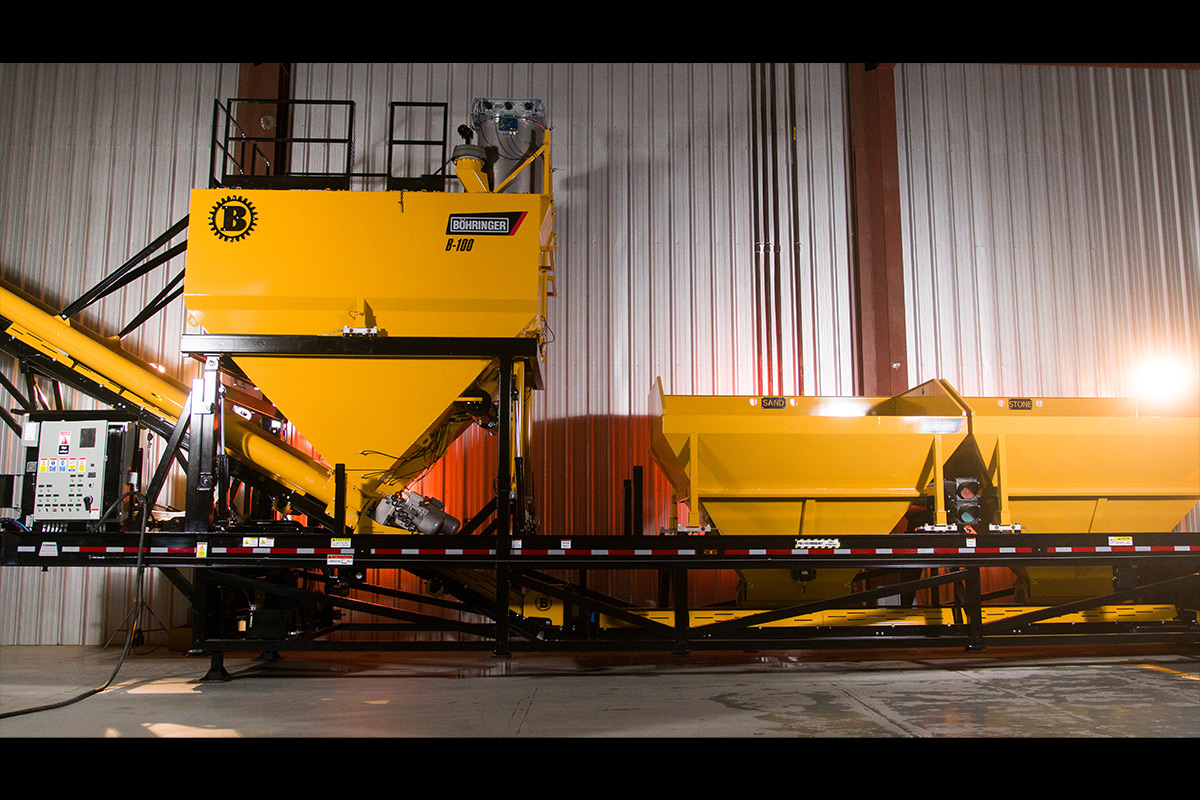In the world of construction, the choice of a batch plant plays a crucial role in determining the efficiency and success of a project. Whether you’re involved in small or large construction projects constructing airports, power grids, wind farms, highways, rail or sea terminals, large commercial and residential buildings, dams and power plants, or tunnels and underground structures, selecting the right batch plant is essential. Among the key decisions to make is whether to opt for a stationary or portable batch plant. Let’s delve into the factors to consider when making this decision.
Construction of Highways, Airports, sea, and rail terminals
Projects involving the construction of , highways, power plants and airports often require a consistent and reliable supply of concrete. For these large-scale projects, stationary batch plants are typically preferred. These plants offer high production capacity and can be optimized for specific mixes, ensuring consistent quality throughout the project duration. Their fixed location allows for efficient material handling and storage, contributing to streamlined operations. Check out the Böhringer B100s and B150s
Construction of Large Commercial and Residential Buildings
Large commercial and residential building projects demand flexibility and adaptability in concrete production. Portable batch plants excel in meeting these requirements. Their mobility enables them to be easily transported to the job site, reducing transportation costs and time. Portable plants also offer quick setup and teardown, allowing for rapid deployment to multiple locations within the project area. This flexibility makes them ideal for projects where space constraints or changing job site locations are a concern.
Construction of Dams and Power Plants
Projects involving the construction of dams and power plants often span vast areas with challenging terrain. In such cases, a combination of stationary and portable batch plants may be utilized. Stationary plants can be strategically positioned at key locations within the project site to ensure a steady supply of concrete to critical areas, while portable plants can be deployed to remote or hard-to-reach locations as needed. This hybrid approach optimizes efficiency and ensures timely completion of the project.
Construction of Tunnels and Underground Structures
The construction of tunnels and underground structures presents unique challenges, including limited space and access restrictions. Portable batch plants are well-suited for these projects due to their compact size and mobility. They can be positioned in confined spaces near the construction site, minimizing material handling requirements and improving overall efficiency. Additionally, portable plants can easily adapt to changing project conditions, making them an ideal choice for tunnelling and underground construction projects.
Find the Right Batch Plant for Sale at Böhringer Group
For large-scale projects with consistent concrete demand, stationary batch plants offer high production capacity and efficiency. On the other hand, portable batch plants provide flexibility and mobility, making them ideal for projects with space constraints or multiple job site locations. By carefully considering the nature of the project and its unique challenges, you can make an informed decision that ensures optimal concrete production and project success.
Reach out to us for advice on selecting the right batch plant for your project! Our B-100 series is top-of-the-line, easy to move and quick to set up. Chat with us today at our main office in Innisfail at (403) 227-2820 or via email at info@bohringergroup.com. Let’s get your project moving forward together.


Leave A Comment